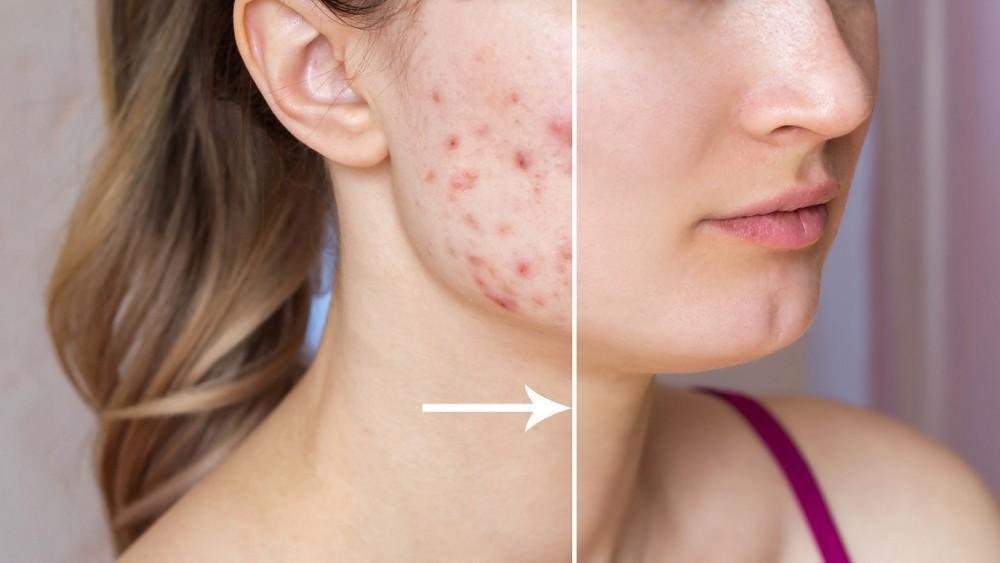
Blog
Understanding Acne: Causes, Triggers & Effective Treatment

Acne is a common yet multifaceted skin condition that can affect individuals at any age. Far from being just a cosmetic concern, persistent acne can leave behind lasting physical scars and emotional distress. From minor blackheads to painful cysts, its severity varies—but with the right understanding and approach, acne can be effectively managed.
What Causes Acne?
Acne develops when normal skin processes are disrupted, resulting in clogged pores and inflammation. Key contributing factors include:
-
Excess Sebum Production: Overactive oil glands produce more sebum than needed, leading to pore blockages.
-
Clogged Hair Follicles: Dead skin cells combine with oil, forming plugs known as comedones.
-
Bacterial Growth: Cutibacterium acnes (formerly Propionibacterium acnes) thrives in blocked pores, promoting infection and inflammation.
-
Inflammation: The immune system responds to bacteria and blockages with redness, swelling, and tenderness.
Common Triggers of Acne
Beyond biological causes, various lifestyle and environmental factors can worsen acne:
-
Hormonal Changes: Puberty, menstruation, pregnancy, or conditions like PCOS can increase oil production.
-
Genetics: If acne runs in your family, you may be more prone to breakouts.
-
Stress: Elevated cortisol levels can overstimulate oil glands.
-
Diet: High-glycemic foods and excessive dairy consumption have been linked to acne flare-ups.
-
Skincare Products: Using heavy, comedogenic, or fragranced products can clog pores and irritate the skin.
Types of Acne
Identifying your acne type is crucial for selecting the right treatment:
-
Comedonal Acne: Non-inflammatory blackheads and whiteheads caused by clogged pores.
-
Inflammatory Acne: Red, swollen pimples triggered by bacteria and an immune response.
-
Cystic Acne: Deep, painful lesions under the skin that often require medical intervention.
The Emotional Impact
Acne doesn’t just affect your skin—it can also affect your self-esteem and mental health. Many individuals experience anxiety, depression, or social withdrawal. An effective treatment plan should address both physical symptoms and emotional well-being.
Proven Treatment Options
Treatment depends on the severity of the acne and the individual’s skin type. Options include:
Over-the-Counter (OTC) Remedies:
-
Benzoyl Peroxide: Kills acne-causing bacteria and reduces inflammation.
-
Salicylic Acid: Exfoliates and clears blocked pores.
-
Alpha Hydroxy Acids (AHAs): Promote skin renewal and smooth texture.
Prescription Medications:
-
Topical Retinoids (Retino-A): Increase cell turnover and keep pores clear.
-
Antibiotics (Topical or Oral): Reduce bacteria and inflammation.
-
Oral Isotretinoin: A potent option for severe, cystic acne—prescribed under close medical supervision.
Skincare Tips for Acne-Prone Skin
Daily care plays a vital role in managing breakouts:
-
Gentle Cleansing: Use a mild, fragrance-free cleanser twice a day.
-
Hydration: Choose oil-free, non-comedogenic moisturizers.
-
Sun Protection: Using daily SPF is essential, especially when using acne treatments.
-
Hands Off: Avoid picking or squeezing pimples to prevent scarring.
-
Consistency Is Key: Stick with a routine and give products time to work.
Lifestyle Habits That Support Clearer Skin
Healthy skin starts from within. Consider these habits:
-
Balanced Diet: Eat nutrient-rich foods and minimize sugar and processed snacks.
-
Stress Reduction: Practice yoga, meditation, or hobbies to relax.
-
Stay Hydrated: Water helps flush toxins and maintain skin elasticity.
-
Sleep Well: Aim for 7–9 hours of quality rest for optimal skin repair.
Take Control of Your Skin Journey
Acne may be challenging, but it’s far from untreatable. Whether you’re using over-the-counter products or dermatologist-prescribed treatments like retinoids or isotretinoin, the keys to success are consistency, patience, and a customized plan.
Consulting a skincare professional can provide insights tailored to your skin’s unique needs. With proper care and determination, you can manage breakouts, restore skin health, and regain confidence—one step at a time.
